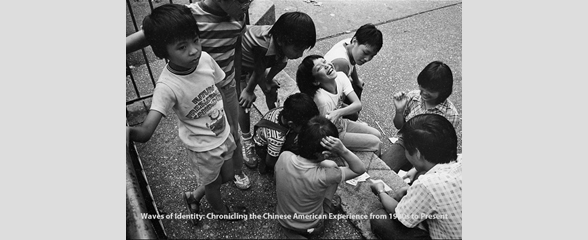 | Mr. Tam, a Toisan (Taishan) native, has worked in the laundry industry from the time he immigrated to the U.S. in 1951 to the time of the interview in 1980. Forced to flee after the communist victory in China, he was sponsored by his older brother, with whom he worked at Zhongshan Wet Wash before being able to strike out on his own in 1964. Due to U.S. immigration policy, he was initially unable to sponsor his wife and family and found being separated from them very stressful. Mr. Tam’s grandfather was part of the earliest generations of immigrants (laohuaqiao) who came to the U.S. in the 1800s. His grandfather saved money while doing laundry work then returned to China around the 1910s to start his own business.
Mr. Tam lived through pivotal decades in the history of Chinese laundries in New York, including witnessing the older generations living and working at hand laundries when he first arrived, the arrival of newer immigrants, the change to large-scale wholesale shirt press and wet wash models, and the shift from old to new style machines. In this interview, he speaks about this history, as well as provides a window into the industry’s golden era and darkest years, the number of laundries in the city at the time, working conditions, unionization, prices, and prevailing wages. He also shares background information about his family and life before immigrating. This interview was conducted in Cantonese. | 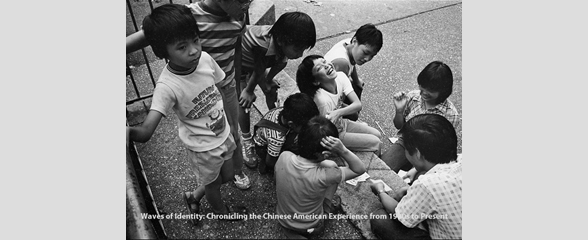 | In this interview, Andy Eng talks about his upbringing in China, his family, and how he immigrated to the United States. Eng was born in mainland China and both of his parents immigrated to the United States before him. Eng talks about living with his extended family and how he had to join gangs in Hong Kong in order to survive. Eng’s immigration to the United States was easier than expected because his father was already a citizen at that point. Eng talks about his experience in Brooklyn, the culture shock of coming to America, his education, and work experience starting in high school. Lastly, he discusses his laundry business in the 1960s as well as his children raised in America. | 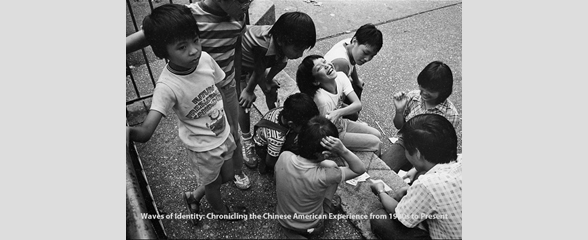 | In this follow-up interview, Andy Eng talks more about how and when his father immigrated to America as well as his father’s profession in his laundry business. Andy talks about his father coming to America during the Great Depression and his father almost getting drafted for the war when in his forties. Andy also talks about his father’s citizenship process and father’s assimilation into American culture. | 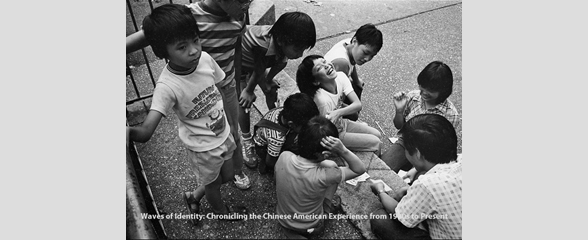 | Daniel Chu was born in Kohanaiki, Hawaii in 1914, the tenth child in a large family of eight boys and four girls. His father’s parents were Hakka and had first migrated to Trinidad or Jamaica in the 1870s to work on rice or sugar plantations. After their contracts ended, they sent his father, who was eight years old at the time, back to their home village in Guangdong Province. When he was eighteen, they sent for him to join them where they had settled in Honolulu, Hawaii. Daniel’s mother was born in Honolulu. Her parents, also Hakka, had immigrated to Hawaii around the same time as his father’s parents. Daniel begins the oral history by recounting this immigration history, as well as memories and details about his family’s life in Hawaii. He speaks about his father’s recruitment as a lay minister by the Episcopal Church and the importance of religion in their lives, as well as his parents’ tailoring work and ownership of a western dressmaking business. Daniel next discusses his family’s move to New York in the 1920s. He describes his mother as rather remarkable for not being afraid to pioneer in New York and move her family there. Daniel, then age 15, followed with his father and three siblings in 1929. He recalls his mom owning a share in wet wash laundries in the Bronx, his first contact with Chinese laundrymen at Sing Lu Laundry across the street, being part of the neighborhood St. Margaret Episcopal Church and conducting English classes for Chinese laundrymen there, and his schooling at P.S. 51 in the Bronx, James Monroe High School, and Oberlin College. He had only been able to save enough to attend one year of college. After his money ran out, it was 1935 and the nation was still in the midst of the Great Depression. He describes jobs as scare and difficult to get, especially if Asian. He managed to get hired to work on a couple of ships, including one which sailed from New York to the Canal Zone and back. He got fired from that job because he rebelled and snuck ashore in Colón. In those days, Chinese seamen were not allowed to get off in the Panama Canal Zone, but Daniel insisted that he was an American citizen and as such should be allowed to go ashore like everyone else. After he left the ship in 1936, he went to work on a laundry delivery truck for his mom, who at this time owned the Sun Lun Chung Company, a grocery store at 4 Mott Street, and a laundry supply store. It was from this job of collecting laundry needing washing all over Bronx that he says he gained a window into laundrymen’s lives. After a year in this job, his mother got him another job with a Chinese print master on Park Place, the Row Schew Company run by Jimmy Lawson. The store upstairs sold mostly laundry supplies, while the printing press he assisted with downstairs made a brisk business printing laundry tickets. After leaving this printing job in 1938, he describes taking a cross country trip to San Francisco with a friend and going back to sea again to work as a galley help on a couple of ships, including one sailing from San Francisco to Manilla via the Honolulu, Yokohama, Kobe, Shanghai, and Hong Kong route. During all of this time, he had still been hoping to save money to return to Oberlin, however, found it difficult to save aboard the ship. Hearing of higher wages in Honolulu, he decided to return to Hawaii in October of 1941. There, he bore firsthand witness to the Japanese bombing of Pearl Harbor and says that his dreams of returning to college shattered when the war began. | 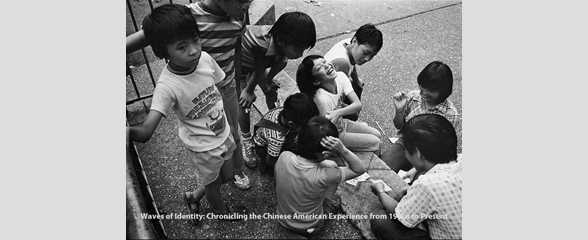 | This combined interview includes conversations with Alice Young, Joseph Eng Young, Tom Wong, and Helen Wong. The topics covered include their immigration story coming to the United States from China, family life, their education, and careers. Joseph and Tom provide insights into the Chinese restaurant industry in New York Chinatown during the 1920s and 30s. Helen describes the types of discrimination she and her family faced as Chinese living and working in the United States. Alice shares details about going to Chinese school and specific weekend and after-school activities enjoyed by kids living in Chinatown during the 1930s. They would also share stories about major current events that they experienced, such as World War II and the China Relief Fund as well as the local Tong Wars in Chinatown. | 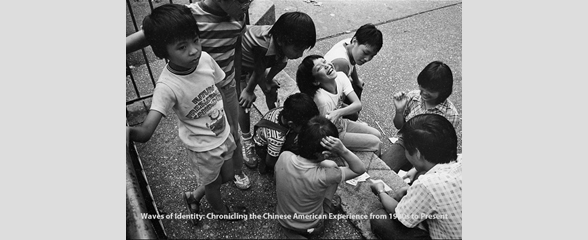 | Growing up, Cora May Chin (née Chu, born 1927) lived with her parents and two sisters at 47 Mott Street, above the apartments of her paternal grandparents and large extended family. Her father, Farn B. Chu, was a doctor with a medical practice on the third floor of the same building, and her grandfather, Chu Fook (Ng Yee Foke), was a proprietor of Mon Hing Co., a wholesale restaurant supply and grocery store at 19 Pell Street. Her mother, Mary York Tsui, taught at Chinese school, which Cora attended after school six days a week for three years during junior high. Cora initially attended the neighborhood’s P.S. 23 from kindergarten through first grade, however, she and her sisters subsequently received a scholarship to Birch Wathen, a K-12 private school in the Upper West Side. At the University of Michigan, Cora majored in Anthropology, and to help support herself, spent every summer working for New York Hospital as a clinic aide. After graduation, she landed a job as a medical technician at Sperry’s. In 1953, she married Stephen Yook Chin, with whom she had three children. After her children were born, she decided to go back to get her master’s in education at Hofstra University and spent the next eighteen years teaching first to third grades at Hewlett Elementary School in Long Island, New York.
In this oral history, Cora begins by recounting the immigration story of her family, including the first family members to come to the United States. Other topics of the oral history include her education, what Chinatown was like when she was growing up in the 1940s, social life, dating culture, and the groups that she and/or her peer groups were a part of, such as the Christian Students Association (CCSA) and the Ging Hawk Club. She also discusses her experiences later in life, including how she met her husband, moving to the suburbs of Long Island, her experience or lack thereof with racial prejudice, her involvement with the Long Island Chinese Circle and US-China Peoples Friendship Association, and her visit to China in 1976. She additionally reflects on her fluency level and use of English and Chinese, her children’s identification as more Western than Chinese and their choice of caucasian spouses, as well as her own feelings towards dating caucasian men and living in a predominantly caucasian community among caucasian friends. | 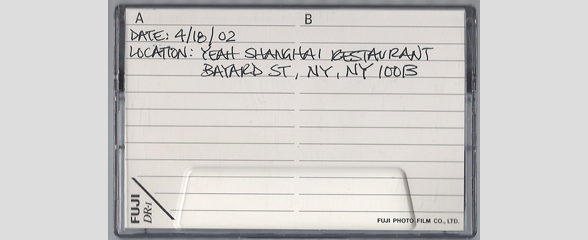 | This interview with Alice and Jip Chun, conducted by Ernest Abuba on August 21, 1984 for the Chinatown History Project, discusses Louis Chu’s novel Eat a Bowl of Tea as adapted for stage by Ernest Abuba. Alice Chun worked with Chinese-speaking patients as a public health nurse employed by the Community Service Society. Jip Chun came from a transnational merchants’ family with early roots in New York Chinatown. In the interview, Abuba asks Alice and Jip to help provide a general Chinese cultural perspective or their own perspective on situations and characters presented in the novel or play such as Ben Loy’s acceptance of an illegitimate son, his father Way Gay’s feelings about this, why Way Gay would be upset at his son for visiting prostitutes when he himself did so, the strong female character of Jung Shee, and women being abused. Alice and Jip bring their personal experience and knowledge to bear in discussing the actual instances of prostitution, venereal diseases, sterility, infidelity, illegitimacy, and domestic abuse in postwar Chinatown society. Overall, they paint a picture of how relationships and family dynamics on both sides of the Pacific were directly shaped by extended family separation and gender imbalances resulting from Chinese Exclusion. In the conclusion, they discuss what they perceive might be a large generational or cultural knowledge gap that perhaps renders Chinese customs and practices of the past as represented in the play or novel as foreign or not easily understandable to younger audiences inculcated in contemporary, westernized norms. | 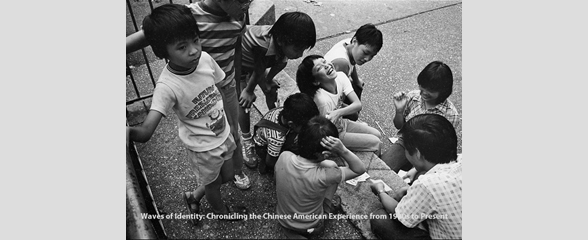 | Cliff Law grew up in the town of Hastings in Upstate New York and later moved to New York Chinatown in the late 1930s. His father, Harry Law, owned a foundry that manufactured laundry equipment in nearby Kingston and a hardware store in Chinatown at 11-13 Doyers Street (likely Excelsior Laundry Machines Co.). The oral history interview begins with Cliff recalling memories of Doyers Street, as well as discussing the history of 11-13 Doyers Street, the building his father purchased after a fire in 1934/35. The two-story building, which housed his father’s hardware store, a Chinese arcade and Nom Wah Tea Parlor downstairs and an apartment in which Cliff grew up upstairs, was located in a corner called the Bloody Angle, so-called because this was where the Hip Sing and On Leong tongs often fought. In the interview, Cliff shares details about his father’s life, including that he came to work on the railroads in the 1880s when he was 17 or 18 years old, that he saved and moved to New York and for a while worked as an interpreter in Westchester County, that he lost his first wife, who was caucasian, in the flu epidemic of 1918, and that he divided his time between tending his foundry and hardware store and traveling around the country to sell and install laundry equipment in Chinese laundries. Cliff also talks about growing up in Hastings, visiting Chinatown every Sunday with his family, then moving there to live when he was in fourth grade. While living in Chinatown, Cliff went to PS 23 and Chinese school, attended the Presbyterian Church on 33rd Street and True Light Church/Mission regularly, and was an active member of the Cub Scouts as well as the first air scouts squadron organized in Chinatown during World War II. | 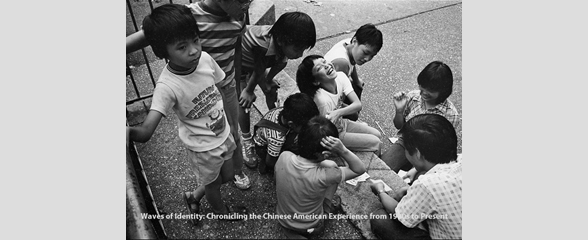 | In this interview, Ann Moy shares and plays songs from her past using her harmonica. Ann learned most of these songs from elementary school, the radio, and from being in a labor union [do we know which union?]. She is able to play songs on her harmonica based on what she hears. She is passionate about music from various cultures. | 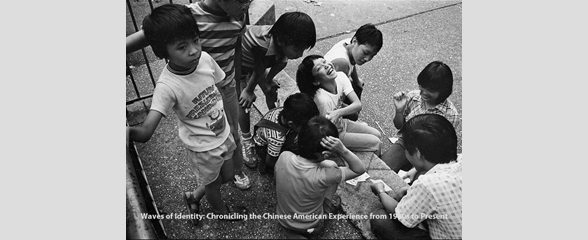 | Delamot Wah describes her life growing up with her mother in their family hand laundry store in Newark, New Jersey during the 1920s through 1950. Topics covered included Delamot dealing with racism as a mixed-race child, her work in the hand laundry from a very young age, and her family relations, as her mother had children with different partners, resulting in her having different step-siblings. Delamot relates stories of her Chinese stepfather, Charles Chin Wah, and describes how she was enmeshed in Chinese American and Chinatown culture. |









